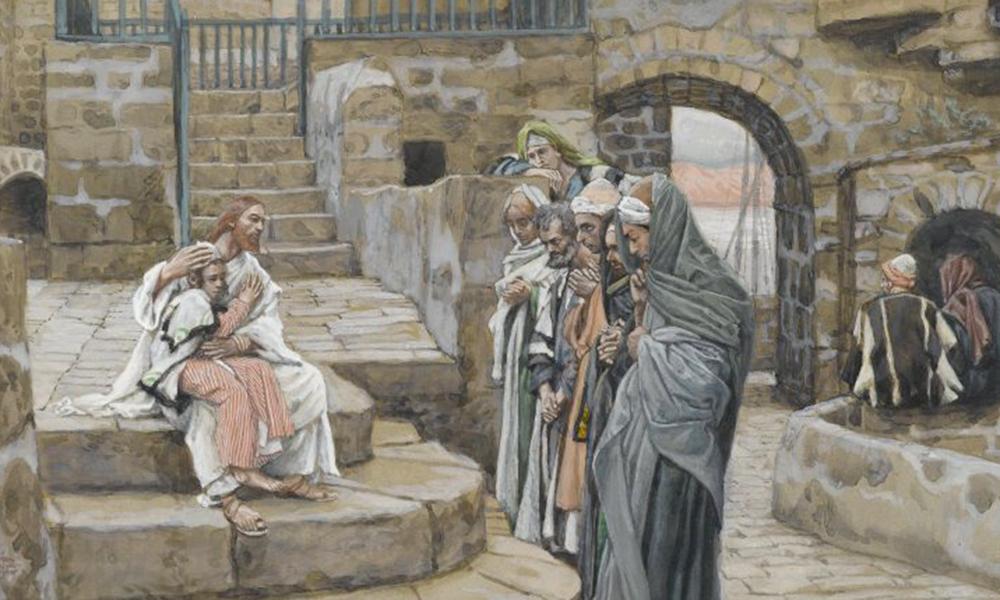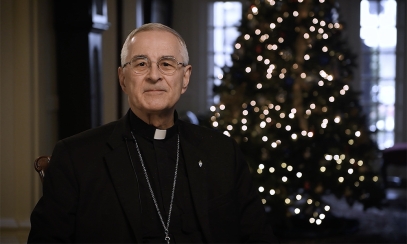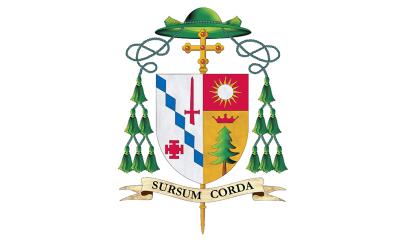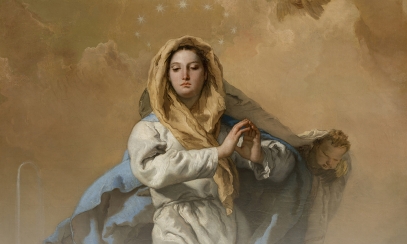
September 26, 2021 Homily
‘Go Out and Announce the Good News’
‘Go Out and Announce the Good News’
Dear Sisters and Brothers,
Our readings today open up new horizons for our consideration. In short, it questions who’s “in” and who’s “out” while the proclamation of Christ’s saving name isn’t limited to only certain select individuals. As a church that is denominated “catholic” meaning “universal,” we search for an ever wider “we.”
It’s hard to believe now, but 50 years ago, as a collegian at Michigan State University, I remember being involved in a Bible Study group on campus. It was considered an ecumenical non-denominational group that would meet on Friday nights. The method was pretty simple: read some passage from Scripture, some relevant sharing of our experience with a helpful point about being a Christian, and a social. In fact, we were told, it didn’t make any difference what denomination you belonged to - all were welcome.
The story changed in my second year. A couple veteran members of the group approached me. “Can we speak with you?” they asked. “Sure,” I responded. The short version of what they shared was that - as a Catholic - I would no longer be welcome to attend. They believed that Catholics would not be saved, and I would be welcome back if I abandoned my committed faith as a Catholic.
Now, my convictions as a Catholic were very strong. Although I perhaps was not completely able to articulate every doctrine or teaching of the Church or to quote extensive paragraphs from the Bible verbatim, I was able to recite the Creed which, I believed, contained a clear synthesis of our fundamental beliefs. Moreover, I believed that it was here in the Church that I experienced the profound presence of Christ that I had not found anywhere else.
Did I believe that Jesus Christ is the mediator between God and man (each person)? Yes, I did.
Did I also believe that Jesus founded a Church on the rock of Peter’s faith testimony? Yes, I did.
Did I believe that this faith had been handed down generation to generation - down to the present day through an unbroken line of succession of pastors or shepherds from Peter to Pope Francis? Yes, it made historical sense.
In fact, it was this handing on of our faith that we can say, “We know who our teachers are!” It is here that we have the constant and certain guarantee of the fidelity of the message of Christ Himself. In fact, it is the Church as the Body of Christ, which contains the abiding presence of Christ for our day. Only a presence of the Word-made-flesh could respond to my need more than memorizing some quotes from the Bible. I believe that when I met Christ, I discovered a depth to my humanity that I might not have ever known.
I share this story with you because of the importance of knowing our faith, more than knowing about our faith (i.e., of being living witnesses of what it is we believe that will bring the face of Christ to others we meet). Whether we are at home with our families, with friends, non-believers or believers of other faith traditions or newcomers to our communities, it is vital that we somehow communicate the message of Christ in its fullness to all.
Nevertheless, there are three dangers that we face as Christians:
- The first danger is to compartmentalize or segregate our faith as a component of my life, but not embracing all of my life. We would view this component of our faith as the one hour on a weekend to which I dedicate my life. But … faith is excluded from all other aspects of living my life outside of these walls.
- The second danger is to reduce our faith to something which is akin to saying that the purpose of faith is to: “do good and avoid evil.” That’s a nice thought, but it is not faith. Even non-believers can do this and live upright and outstanding lives.
- The third danger is to limit our faith only to those who are “in,” to those who are perfect, and not seek to invite others to share the joy that we’ve found. We are faith that goes out on mission to invite the lost, the forsaken, the abandoned, the lonely, those on the peripheries of life. They, too, are part of our wider family, a wider “we.”
My friends, each of us has a purpose and destiny given by God. Not one of us here is outside of or extraneous to God’s providential plan or care. Moreover, we are called to a life of hope, a life of abundance, a life of fullness and fulfillment.
So, when we begin to deny ourselves of this hope, to limit it to a select few, or water it down, we do a disservice. When we divert our attention away from the plan of God for us, we find ourselves coming up short. There’s no doubt that we all live with burdens of a past and a worry about the future. Yet, we can find comfort in the fact that “every saint has a past; every sinner a future.” In the face of cowardliness, laziness or excuses, there are many today who depend upon our word and example in order to follow Christ more closely. In recent years, we have seen the tragic consequences and the harm done when we fail to live out “who we say we are.” Today’s Gospel is rather dramatic in its portrayal of the effects and consequences.
From time to time, as I may have already shared with you, I think about the fact that when I face the Lord face-to-face, it will be an amazing experience. A priest mentor of mine suggested to us that when we have that one encounter of mercy at the end of our earthly life, the Lord will pull out the blueprint of the dream He had for me. The Lord will say, “This is the plan I had for you!” Then, He will pull out another sheet, perhaps with the ink not quite dry. And this one, will be what I actually did with the gifts He gave me and what I became. I hope and pray the two are not too far apart and will line up reasonably well.
No doubt, we are optimistic people. We are people who have hope. We have a joy deep down that the grace given us in this Eucharist will aid us in becoming the people, the disciples of Christ we say we are. We have been a people who have been faithful to the call given us by Christ our Lord. For that reason, because of our baptism and our confirmation, we are “in,” and we have a mission to go out and announce the Good News of Jesus and invite others to share this joy we’ve found. We accept the mission of Christ by proclaiming by word and deed and by our very lives how Christ is truly present in our world today.
We need it. We long for it. We hope for it. We must be with each other in the greater human family – as brothers and sisters all.



